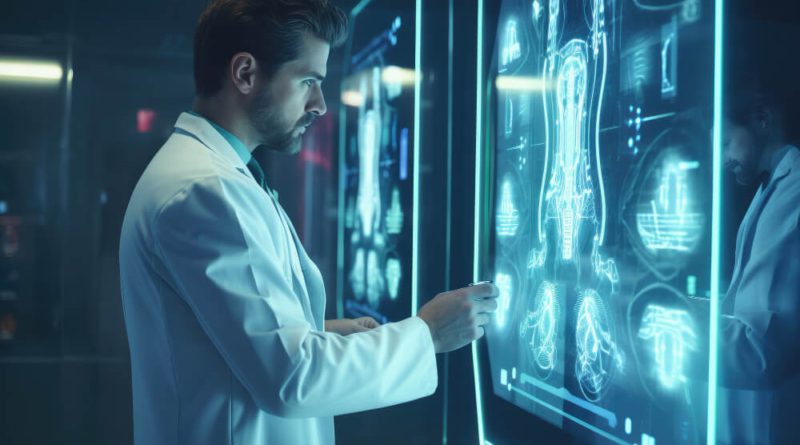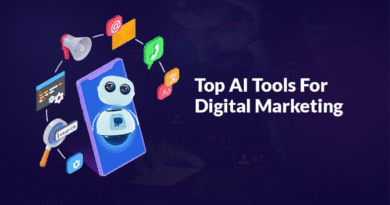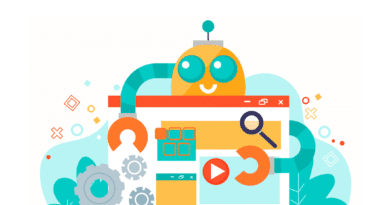Artificial Intelligence in Healthcare: Current Applications and Emerging Trends
Are you a healthcare organization that wants to integrate AI into its operations, but doesn’t know how it can help you? Or are you looking for the applications of AI in healthcare? Or do you want to know about emerging trends of AI in healthcare? No need to worry. Here we have prepared a detailed blog about current applications and emerging trends in AI for healthcare. For a seamless development and integration of AI in your healthcare operations, you will need expert and experienced AI developers who can understand and fulfill your requirements.
Table of Contents
What is Artificial Intelligence in Healthcare?
AI in healthcare is a revolution that has changed the way professionals diagnose and treat patients with a significant role in improving the accuracy of diagnostics. This has led to effective and personalized treatment plans. The factor that makes AI in healthcare more impactful is that it can process large datasets in no-time and help professionals identify patient risks, disease makers and health trends that usually go unnoticed.
Current Applications of AI in Healthcare
Artificial intelligence in healthcare is a growing trend with multiple organizations adopting it with every passing day. It has already changed various operations of the healthcare organizations that adopted it. With a wide range of applications in healthcare, it has become a go-to choice for hospitals or clinics that want to streamline their operations and improve.
Robotic Surgery
The new precision level of robotic surgery has been reached since the integration of artificial intelligence. In general, it has become more sophisticated than ever, and with technical advancements, it will become even more sophisticated. All of these will lead to more precise surgeries. Apart from that, it also analyzes patient data and images to help surgeons with effective preoperative planning. With a device known as a surgeon’s console, doctors get full control of it on each arm, enabling them to have a 3DHD view of the surgical field. This is an enhanced version of robotic surgery.
Electronic Health Records
Another crucial application of artificial intelligence in healthcare is its integration with electronic health records. This has reduced the burden on healthcare specialists. Now, with access to electronic health records, AI can collect, manage, and analyze a vast amount of data in no time. Artificial intelligence models are very good at detecting patterns, and that’s exactly what they do when integrated into EHR. They go through the data present in EHR and other clinical records to find patterns and help healthcare specialists make decisions using these insights in treatment planning.
Personalized Medicine
We know that each person is different and has unique medical requirements which makes a personalized approach to plan and assign suitable treatment plans very crucial from both doctors’ and patients’ point of view. Artificial intelligence is exactly what a medical professional needs here. As we already know that AI automatically processes a large volume of datasets and turns them in
Clinical Research
With the mutation of diseases becoming more common every day, it becomes very important for researchers to develop an effective counter for it, and that too at a faster speed. However, as we already know, developing a medication for a mutating or new disease is a complex and time-consuming task. It requires multiple iterations and goes through a trial-and-error method. Artificial intelligence trained on historical data can speed up this process by analyzing the data and detecting the right molecule and its combinations.
Diagnostic AI
Detecting patterns holds a significant importance in diagnosing disease. It helps professionals to determine the disease and prepare medicines and vaccines. This is where AI and ML help professionals detect patterns in the diseases by providing accurate data and real-time insights. The organizations that integrate AI in their operations train it on legacy health data to turn the records into valuable information. Artificial intelligence also structures the entire data allowing the professionals to easily detect and promote precise diagnostics and scientific research. With structured doctors can also refer to previous cases to offer better assessment to the next patient.
Remote Patient Monitoring
One of the most impactful applications of artificial intelligence in remote patient monitoring. Not everyone who requires constant medical attention is able to visit hospitals and clinics on a regular basis. This is where artificial intelligence comes in. The smart wearables are now integrated with AI to study the real-time data to detect anomalies in patients’ health and inform the same to the doctors. Again here, a specialized software analyzes the data sent by smart wearables to enable professionals make quick and accurate interventions and promote better health. Some of the best examples include heart-rate and blood pressure monitoring done with smartwatches.
Emerging Trends of AI in Healthcare
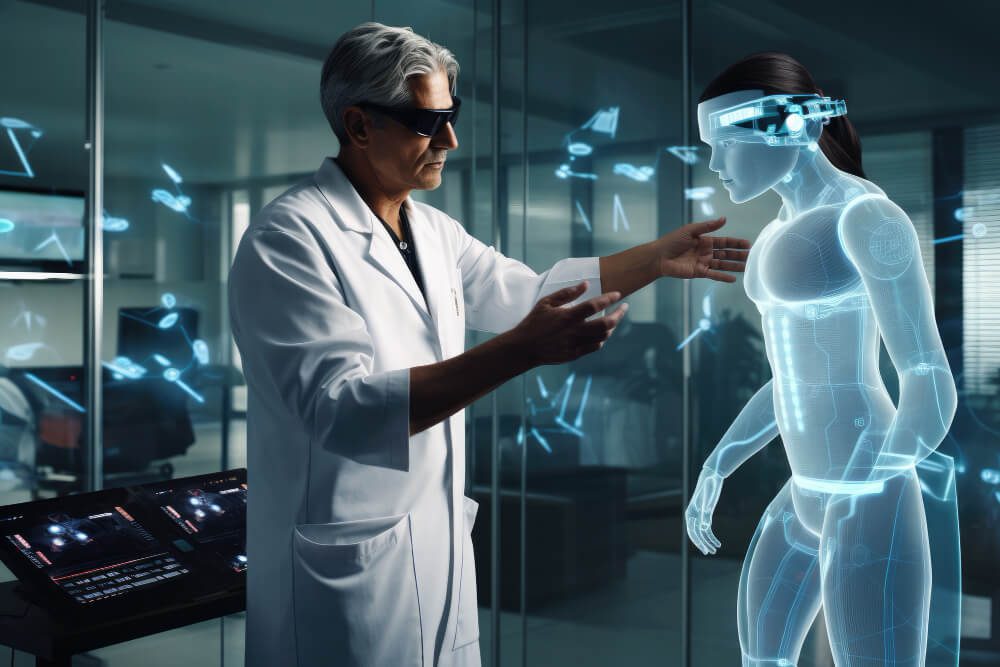
One thing we can be sure of is that the artificial intelligence future in healthcare is a promising one, with more technological advancements coming up in the future. The future AI models will be more versatile with advanced IoMT applications, promoting better medical efficiency and precision. Artificial intelligence is already changing the MedTech sector with solutions that combine clinical decision support software with diagnostic automation. With many more trends coming up in the future, let’s take a look at some of the more promising trends emerging in AI for healthcare.
Agentic Medical Assistance
With technical advancements in the future, soon we will see agentic AI replacing generative AI. More and more healthcare organizations will implement it to build a strong bridge between patients and organizations. With this trend, artificial intelligence won’t need human oversight anymore, making the diagnostics and treatments much faster. Even the drug discovery and clinical research will get a rocket boost with agentic medical assistance.
Intelligent Clinical Coding
Not only will agentic AI emerge as a better solution but also gen AI will become better than it is now. More organizations will include gen AI to automate medical documentation coding so the human errors can be reduced and the entire process is sped up. Apart from that medical professionals will also use it to understand complex medical information and organize them to streamline the work. It will also facilitate data sharing through a secure and fast channel reducing the administrative burden with AI integrated to the systems.
Cybersecurity
Healthcare organizations’ data systems always have a threat of being hacked or data breaches that expose sensitive and private information of both patients and organizations. Here, what organizations can do to improve cybersecurity is add artificial intelligence into the data systems to detect any kind of anomalies and prevent fraud in order to keep the network of the organizations running without any kind of interruptions. The AI keeps analyzing the network constantly to discover the origin of attacks and detect the cyber threats to provide the same insights to the human analysts and prevent malicious attacks. Apart from that AI can also simulate cyberattacks to reinforce the systems for the actual attacks.
Top 10 AI Healthcare Tools
Healthcare is among the most revolutionized industries since the introduction of artificial intelligence. Professionals have updated their way of delivering care with every innovation in AI for healthcare. Everyday you can see new AI healthcare tools emerging that play a crucial role in improving and automating diagnostics and workflows. Let’s take a look at the top AI healthcare tools that are changing the landscape of digital healthcare.
Freenome
Freenome is a healthcare tool that uses AI for diagnostics based on blood, with the aim of detecting cancer in its early stages without any invasive tests. With the combination of machine learning with advanced genomics, it has shown a flagship work improving the survival rates significantly.
IBM Watson Health
IBM Watson Health was among the first to integrate artificial intelligence into medical decision-making. It leverages the power of machine learning and natural language processing to analyze unstructured datasets.
Aidoc
Doctors around the world can prioritize and diagnose critical medical conditions with Aidoc, a trusted AI radiology platform. It continuously assesses imaging data from CT scans, MRI, etc, to detect various conditions, including strokes, brain hemorrhages, and more.
PathAI
Pathology diagnoses have become more accurate and efficient with PathAI. It is a tool that leverages the deep learning of artificial intelligence to help professionals detect diseases like cancer quickly and accurately.
Tempus
Tempus is a next-gen medication software helping doctors to make treatment plans more personalized by gathering & analyzing the clinical and molecular datasets. It can also predict how individuals will respond to specific therapies based on genomic sequencing and patient health data.
Butterfly iQ
Imaging is now portable, intuitive, and AI-powered with Butterfly iQ, a handheld device developed to simplify the work of physicians. They can connect it to their smartphones and use AI as a guide in capturing and interpreting images.
Caption Health
Caption Health or Caption Care has changed the landscape of ultrasound, making it accessible to everyone. It guides professionals who have limited imaging experience and helps them capture high-end cardiac ultrasound images. Real-time AI guidance provides feedback to users during the scan.
DeepMind Health
DeepMind Health, developed by Google, has made scientific research breakthroughs and cutting-edge medical imaging. Its AlphaFold system made protein folding research and solved complex biological puzzles, becoming a powerful tool for the pharmaceutical companies, improving their drug discovery.
Aiddison
Aiddison is an AI-powered drug-discovery tool developed by Merck Pharmaceuticals. The primary focus of this tool is to identify the molecules that can be used for developing drugs using a ligand-based approach. It has a biological target and formulates new molecules with structure-based strategies.
Storyline AI
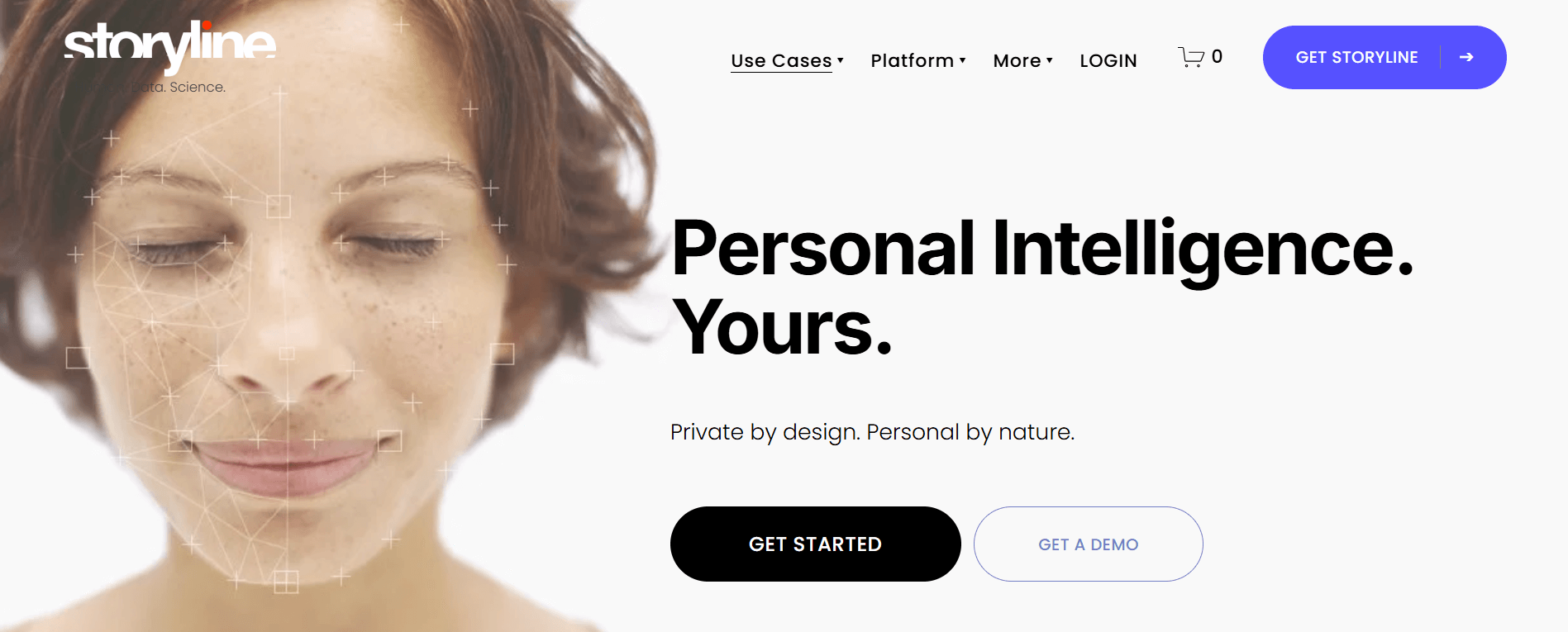
Storyline AI is a healthcare solution that helps professionals connect with patients and make personalized treatment plans. It is a telehealth tool and data analytics platform that collects patient data and recommends treatment plans after analyzing and predicting risks automatically. The solution also caters to live video between doctors and patients.
Conclusion
In the end, we can say that AI in healthcare is a boon for humans that is and will be given by humans. As already discussed, it has a wide range of applications in robotic surgery, electronic health records, clinical research, diagnostic AI, and more. It also has very promising upcoming trends in the future. Every healthcare company that wants to streamline its operations and offer better healthcare services must integrate AI into its operations.

